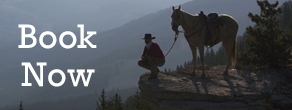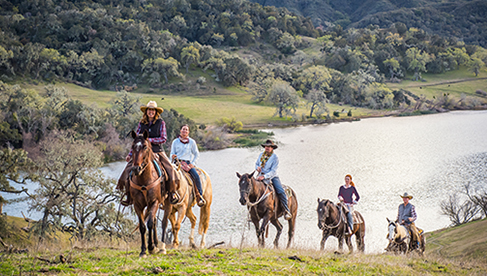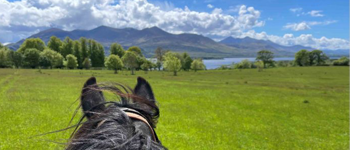“VolunTouring” on Horseback in India






By Darley Newman
A Conversation With Alexander Souri
While researching ways that I could give back to the equine and human community for a recent article on Volunteer Vacations with Horses, I came across a unique horseback riding vacation adventure through Rajasthan, India. The founder of these trips, Alexander Souri, had a vision and a dream that has recently come to fruition through his company, Relief Riders International (RRI).
RRI is pioneering adventure travel trips bring humanitarian aid to people in the beautiful and neglected villages of Rajasthan, in northern India. These trips are open to the public, meaning that those with an adventurous spirit and a desire to help others through service, can gain more than just a riding vacation through India, they can gain a new perspective, while helping others and seeing the world. In a recent interview, Alexander Souri shared with me his passion for helping others and his recent success in India.
Darley: How would you describe the trips that RRI is leading through India?
Alexander: The kind of trips RRI provides is known as voluntourism, a fusion of deep travel, cultural activities, and hands-on service whose appeal has been surging in the past few years. In an era in which many seasoned travelers have had their fill of visiting places as tourists, experiencing places from the outside looking in, voluntourism offers a new alternative way to get inside, if only for a few weeks, to truly connect with the people and culture of a new destination.
Darley: How did you come up with the idea to start these humanitarian relief rides?
Alexander: The idea of combining relief with adventure stemmed both from a waking and sleeping dream. The loss off my father set me off on a journey in which I was circumnavigating my soul. I wanted to be able to live my warrior archetype, while helping people in a tangible way. I wanted to be able to give back without compromising on my lifestyle. India is my father's country; it is also the country which shaped my character in important ways. The ride is a tribute to my father and the love that he bestowed on me during my life.
I view Relief Riders International as an organization helping bridge the cultural divide between east and west, in a time of war and geopolitical instability. It is important to keep hope alive, and exhaust every opportunity for growth and understanding between people.
Darley: Though the notion of service is not new, there are not a lot of service oriented volunteer vacations with horses. What audience are you seeking to reach with your tours?
Alexander: The Relief Riders concept speaks to a broad audience, reaching beyond traditional volunteer activists to a larger population of adventure travelers. These trips have captured the imagination and desire to give in an entirely new group of traveling volunteers. By appealing to a group of people who might not typically think of themselves as volunteers, and attracting them to humanitarian work, RRIÃ’s success signals a strong shift toward volunteering on a global scale.
Darley: In what types of relief missions do riders participate and do they need prior experience or special skills?
Alexander: People who choose to take a Relief Riders International adventure travel trip use their vacation time and budget to participate in a relief mission. While people should have some prior riding experience if they wish to participate on the mission on horseback, being an expert rider is certainly not a requirement. We have had riders in the past on our trips that had started lessons for the first time only a few weeks prior to the mission. And, riders who feel tired or are not comfortable always have the option of riding in one of the Jeeps or as part of the camel caravan that accompanies the riders. Riding on horseback through five villages, they accompany a camel caravan of medical and school supplies. My support team from the Indian Red Cross sets up medical camps, including cataract eye surgery camps, and guests actively support the non-technical set-up and operation of these camps. The team distributes livestock and school materials. There is also an HIV/AIDS awareness campaign using a trained, professional theater group to educate villagers through an interactive presentation about disease prevention. The money from guest trip fees is used to purchase the medical and school supplies and to hire doctors who serve villagers at each camp.
Darley: How much time do riders spend in the saddle each day?
Alexander: Riders will average 20 - 25 miles a day, about three to five hours a day of riding at a comfortable pace, stopping for three meals a day.
Darley: What made you decide to lead these rides on horseback?
Alexander: Traveling through the Rajasthan desert on horseback provides an uncommon view of the area and its people, and riding India’s classic, traditional breed, the Marwari, makes the trip even more memorable. On horseback, visitors gain an intimate experience of this remote region, riding through small villages infrequently visited by tourists in motor vehicles, due to the difficult road conditions. Riding into a local school, children flock to the horses in excitement, and riders enjoy their work- delivering basic medical supplies and school materials such as notebooks, pencils and rulers. In the villages, water buffalo, cows, pigs, camels and birds are everywhere. At times riders will see oxen turning wheels to bring up water from village wells. Being the person pioneering this new concept, it is of utmost importance to be on the field in order see the each mission to a successful conclusion. Organizing the each ride is always steeped in unforeseen challenges such as politics, development of new programs and ever-changing logistics as we travel to new areas. The ride is also a personal experience which allows me the opportunity for personal growth and rejuvenation, while riding the great Marwari!
Darley: So, each ride has a different mission. Do you go to the same villages on each ride or do the itineraries change?
Alexander: Well, the mission of the rides is definitely consistent to our mission is always to provide medical support, educational materials and livestock - however the routes we take and the villages we visit vary. On one of the company’s itineraries, through the Nagaur district of Rajasthan, riders are treated to superb terrain - plains, hills, and breathtaking dunes. On different days the terrain varies from sandy dunes to farmed millet fields, and is peppered with Sambhar deer, water buffaloes and blue bulls. Riders spend their nights in tented camps or ancient forts. One fort, Dundlod Fort, is a monumental castle built in 1750 and studded with nostalgia of Shekawats, the warrior Rajputs who with stood the onslaught of Mughal hordes. Guests spend the night in historic rooms retaining all of its old charm with some modern conveniences.
Darley: I know that you’ve just gotten back from India. Tell me about the success of that mission and your upcoming plans for RRI?
Alexander: In addition to our general medical camps, the February 2006 ride marks the successful launch of our Give the Gift of Sight program. Overall, our team treated 2,572 villagers during the course of this ride, including the 87 cataract eye surgeries performed at our first free eye surgery camp in Mehansar. The team also distributed school supplies and de-wormed 1200 school children. We continued our “Give a Goat” program and distributed goats to 57 deserving families.
The success of this first eye surgery camp provided us with a model on which to build for future rides, and we have set aggressive goals for our eye surgery camps in the 2006-2007 ride season. We aim to perform 600 eye surgeries during our upcoming Relief Ride season.
Purchase Equitrekking DVDs, the Equitrekking Travel Adventures on Horseback book and more at ShopDarley.com. Learn about equestrian vacations and book horseback riding adventures at EquitrekkingTravel.com




